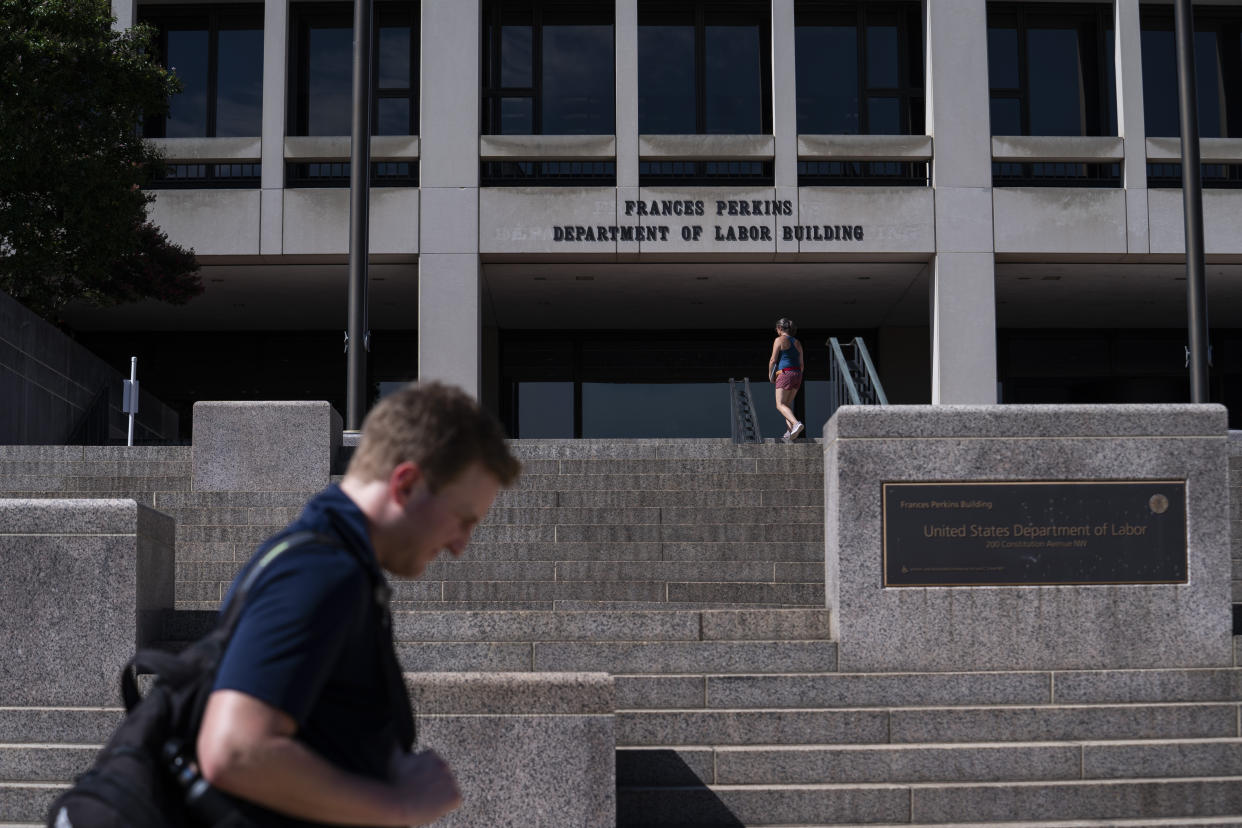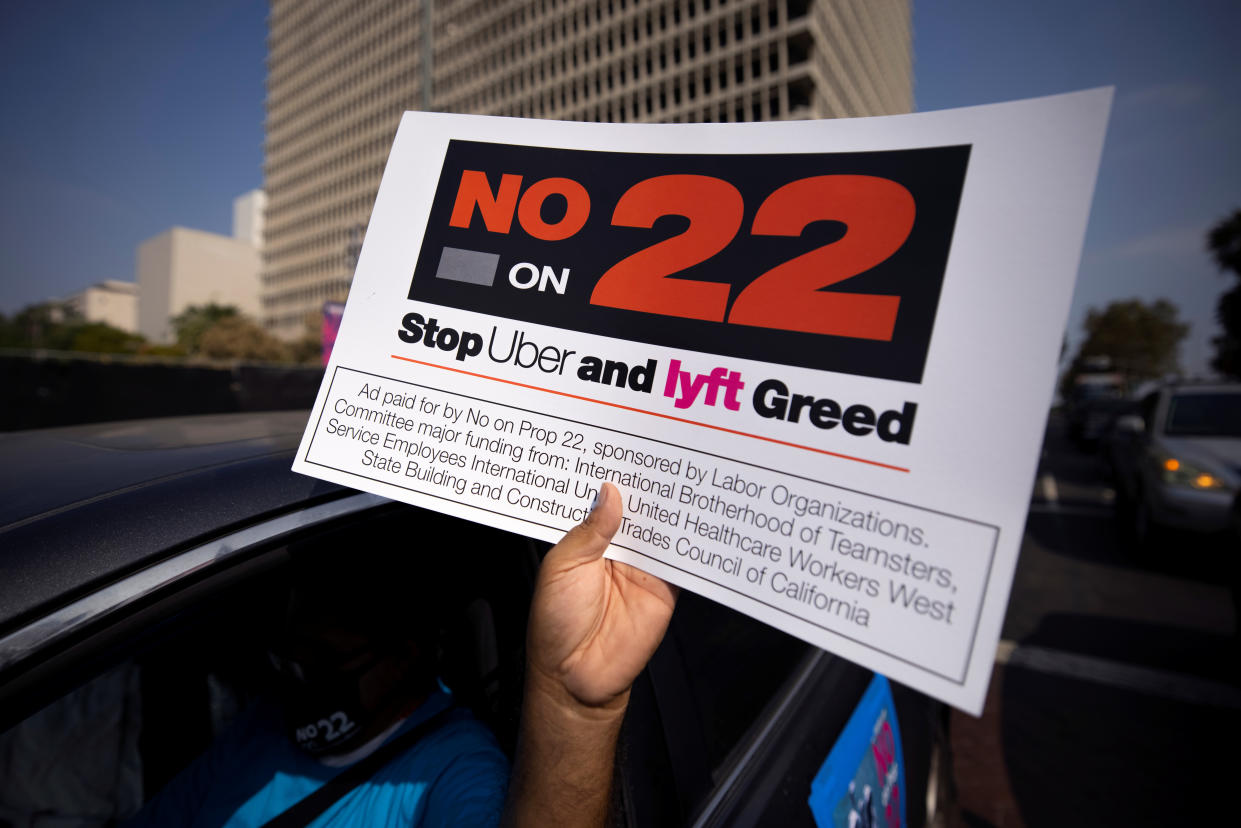Gig economy is much larger than thought, a key development for these workers
Government surveys suggest that gig workers constituted a small portion of the labor pool. But that might not be right, according to a recent study.
About 1 in 10 workers who report working for an employer on one or more jobs is actually an independent contractor for at least one position, according to a working paper from researchers at the W. E. Upjohn Institute for Employment Research. That figure constitutes roughly 15% of the workforce or roughly double previous estimates.
The results also found that a disproportionate number of contractors were low-educated, Black, and Hispanic, which could have massive policy implications for the US going forward.
“Previous studies suggested that the contractors skewed white and male made many people say, ‘hey, we don't need any kinds of protections for these workers, because people are sorting into these arrangements of their own accord,’” ZipRecruiter Chief Economist Julia Pollok told Yahoo Finance. But “maybe these people are falling through the cracks."

Why previous surveys were wrong
Susan Houseman, one of the authors of the study, explained that government studies such as the Current Population Survey and the American Community Survey fail to provide accurate data on the number of contractors in the economy.
“Our evidence suggests that it's not a trivial amount, and probably quite big,” said Houseman, who is also the vice president and director of research at the UpJohn Institute. “And that there are good reasons to believe why the standard surveys, government household surveys, understate the number of self-employed, many of whom are independent contractors.”
She contended that such surveys often record independent workers working for companies as employees rather than gig workers. The study points out that common terms for independent contracting agreements "mean different things to different people."
For instance, the study found that many people surveyed associated the phrase "gig work" with playing music. Others associated the phrase "independent contractor" with construction work rather than work in professions like journalism or white-collar consulting.

Nick Bunker, the director of North American Economic Research at Indeed.com, suggested the UpJohn Institute study could change the Bureau of Labor Statistics's research methodology.
"One policy implication for me is more funding to do these sorts of surveys, or research projects within the Bureau of Labor Statistics, so that we can have a better understanding of this to better accurately capture who's in these sort of work settings," Bunker said.
‘The phenomenon is much bigger’
It's critical that the government accurately measure the gig economy because, in contrast to employees, independent contractors are not covered by Wages and Hours Laws. More specifically, they don’t receive employer benefits like workers compensation and unemployment insurance.
In 2020, California passed Proposition 22 legislation that allowed gig companies like Uber and Lyft to continue classifying drivers as contractors rather than employees, provided they gave them some benefits including health care. The following year, the Trump administration issued a rule that made it harder for contract workers to achieve employee status. The Biden administration blocked the rule and later released a proposal countering such efforts.
Still, “it's hard to get federal or state legislators interested in passing perhaps additional protections for workers in independent contractor arrangements if they think a phenomenon is small, not growing,” Houseman said. “But what these sorts of data suggest is that the phenomenon is much bigger.”

Pollok also pointed out that employment status is particularly important during recessions, when the government intervenes in people’s financial wellbeing. For instance, she cited the COVID-19 pandemic, during which many Americans benefited from unemployment insurance.
“We saw during COVID how completely important that policy was for sustaining demand and preventing an even worse spiral and hardship and foreclosures and all kinds of pain to the economy and a sort of systemic breakdown to the US economy.” Pollok said. “But if 16% of US workers are excluded from that automatic stabilizer in normal times, that's a big problem.”
She also observed that sometimes government initiatives to protect workers can backfire. For example, she noted when states raise the minimum wage above what companies are willing to pay, some simply stop hiring employees and hire contractors instead.
“Perhaps our well-intentioned labor laws that should be lifting workers at the bottom are perhaps pushing them into more precarious arrangements, where they lose all the protections they have,” Pollok said. “So, it's a really, really key issue for us to measure this right and identify who actually are contract workers so that we can appropriately create accurate policies that do what we intend them to do.”
Dylan Croll is a reporter and researcher at Yahoo Finance. Follow him on Twitter at @CrollonPatrol.
Read the latest financial and business news from Yahoo Finance
